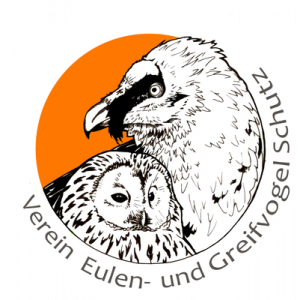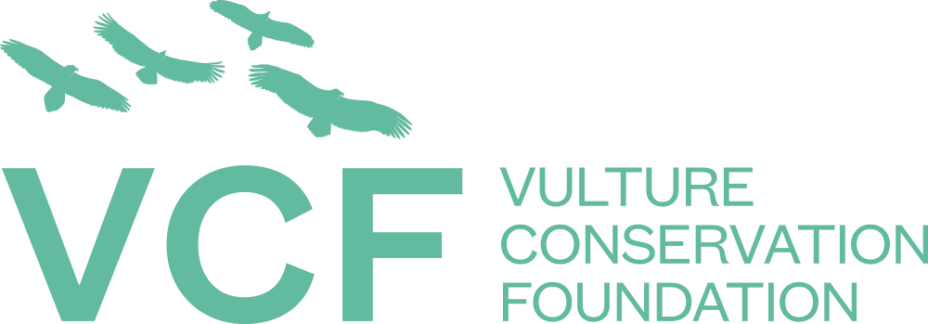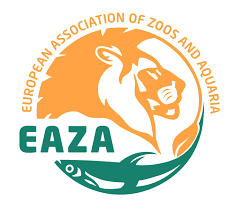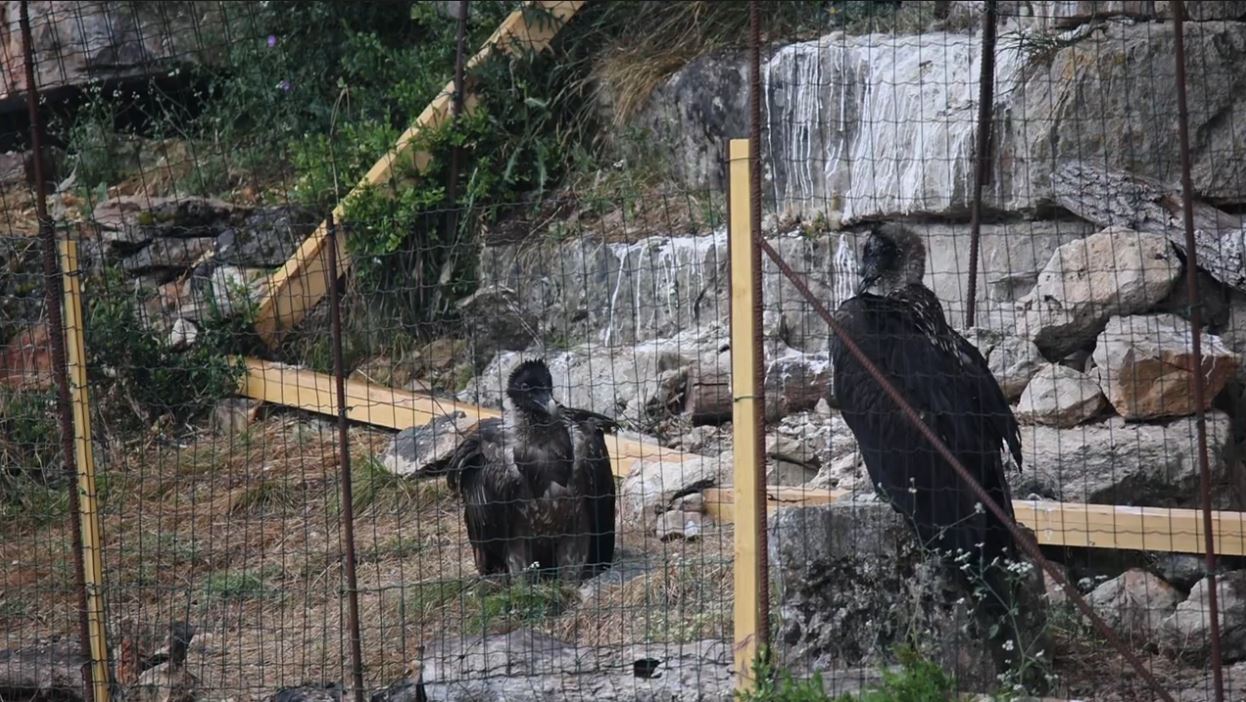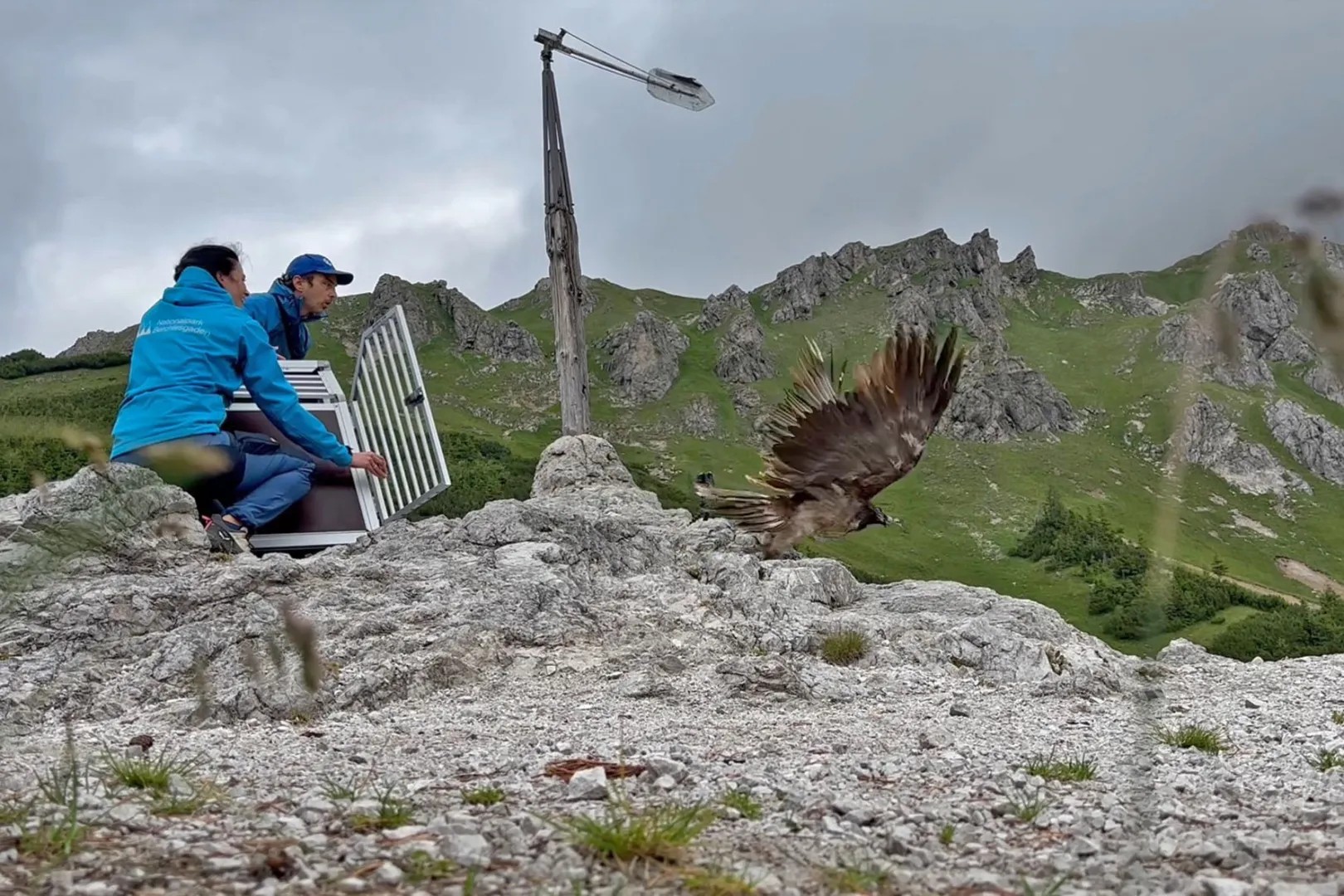
In the late 20th Century, the Bearded Vulture was on the brink of extinction in Europe. Fast-forward to today, and things look brighter for the species. The Bearded Vulture is making a steady recovery across the continent thanks to an international partnership that started breeding chicks in captivity and releasing them into the wild over three decades ago.
These vital conservation efforts are continuing. Presently, the Bearded Vulture Captive Breeding Network, coordinated by us at the Vulture Conservation Foundation (VCF) on behalf of EAZA‘s European Endangered Species Programme (Bearded Vulture EEP), works with over 40 partners to breed chicks fit for release in the wild. The new 2021/22 Bearded Vulture captive breeding season is currently in full swing, and the first chick already hatched!
First Bearded Vulture chick of 2022 hatches in Austrian centre
The pair BG108 and BG175 at Richard Faust Bearded Vulture Specialised Captive Breeding Centre in Austria (RFZ) often lay the first clutches of each breeding season, and this time was no different as they laid their egg on 28 November 2021. After nearly two months of incubating, their first chick (BG1124) hatched in the late afternoon of 20 January 2022. The parents tenderly look after the chick that appears to be growing healthily.

Meet the parents
The male BG108 hatched on 6 February 1989 in Haringsee and is of Cretan descent (3 offspring from his father in the network), while the female BG175 hatched on 1 April 1992 at Tierpark Berlin and is of Asian descent. Both parents had different partners in the past, but ever since they formed a pair in 2001, they have been one of the most productive breeding birds within the Bearded Vulture EEP, significantly contributing to reintroduction and restocking efforts. They have successfully produced a clutch almost every year – the first in 2002 and a total of 39. Not to mention that they hatched 28 chicks, of which 26 survived!
Second Bearded Vulture chick about to hatch
Two days after the hatching, Hans Frey, the manager of RFZ, removed the second egg from the nest and also checked the chick’s health. The staff avoid disturbing the parents, but this visit is necessary. Due to an evolutionary behaviour called ‘cainism’ where the oldest chick kills the youngest chick in the nest, by rescuing the egg, we increase the chances of survival for the second chick, gaining an additional bird for our conservation efforts if all goes well.
After retrieving the second egg, the staff confirmed it’s fertile and will hopefully hatch any moment now! If it does, human keepers will rear it in the first few days and then transfer it to be adopted by a foster pair to avoid any human imprinting and ensure natural rearing. RFZ has been hatching chicks for over 40 years now, with over 170 hatchlings produced, playing a key role in supporting the comeback of the species.
The egg-laying period is still ongoing
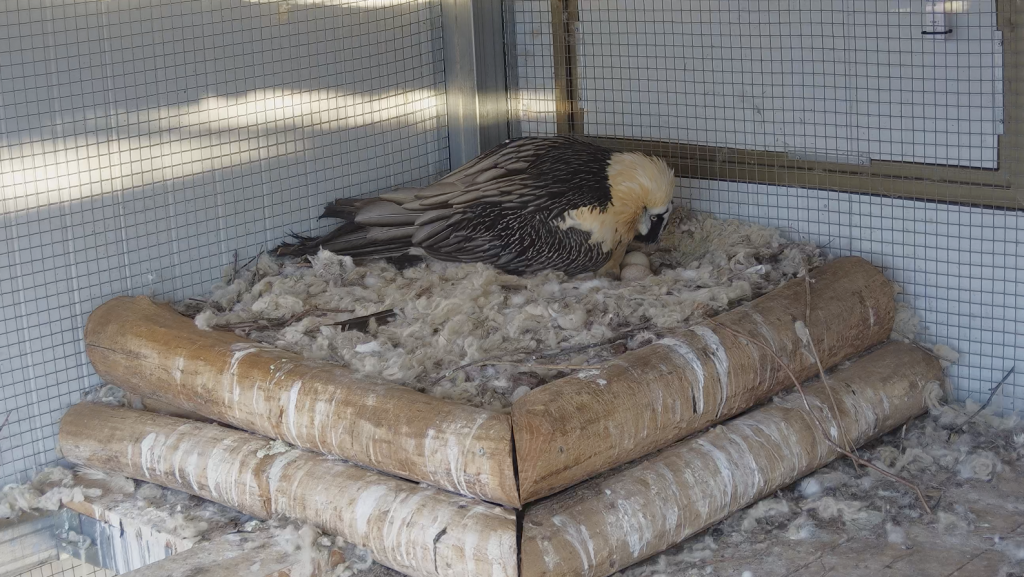
Although the hatching period has started, the egg-laying period is not over yet. Pairs may still lay clutches within the next two months. Up until now, 38 pairs have laid 54 eggs, a similar number compared to the eggs laid during the same period last year. Furthermore, five new pairs have laid clutches this season for the first time, and several additional pairs have started mating this year for the first time.
We will do our best to produce many healthy chicks this season and keep you informed. To follow the news of the breeding season, follow #BeardedVultureBreedingSeason on Facebook, Twitter, Instagram and LinkedIn.
